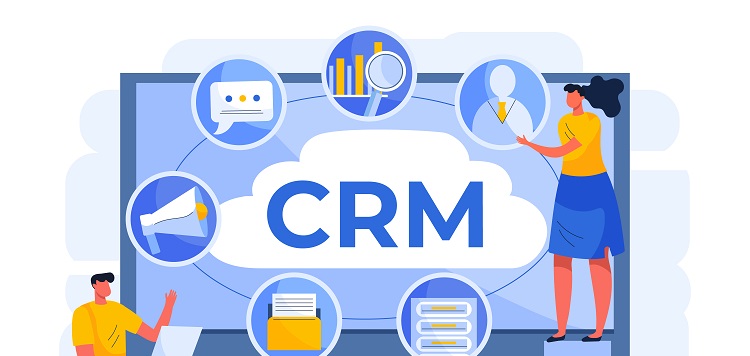In today’s world, customer experience is a top priority for businesses of all sizes. With the surge in digital technologies, the number of channels through which customers interact with an organization has grown exponentially. Thus, a company’s ability to gather and evaluate customer data has become more important than ever before. This is where CRM solutions come in. With an analytical CRM system in place, companies can understand their customers’ needs and preferences and use this data to improve their processes. In this article, we’ll take a closer look at how CRM solutions can optimize customer experiences.
Gathering and Evaluating Customer Data
A CRM system can collect and evaluate customer data from various channels, including data from social media, emails, customer feedback, and purchase history. Analyzing this data comprehensively provides valuable insights into customer behavior, preferences, and expectations. The data can also help identify trends, enabling the company to proactively address customer needs.
Benefits of Knowing Your Customers Well
When businesses know their customers well, they can create targeted marketing and sales campaigns. This, in turn, leads to an increased level of customer loyalty. By understanding their customers’ pain points, companies can tailor their services to meet specific needs. This creates a more personalized experience.
Utilizing CRM tools for effective marketing and sales strategies
CRM marketing and sales strategy tools are designed to execute cost-effective campaigns aimed at the appropriate client groups. The data collected via CRM solutions makes it possible to segment customers based on various characteristics such as age, gender, location, and purchase history. By doing so, businesses can target specific groups and tailor their messages to suit each group’s unique needs.
Forecasting Recruiting Needs Based on Anticipated Growth
Another benefit of CRM solutions is the ability to predict resource requirements. Businesses can use customer data to forecast their recruiting needs over time in relation to anticipated company development. With this information, companies can prepare accordingly, ensuring that they have the right personnel in place to meet customer demands.
Setting KPIs and Sales Funnel Stages with a CRM
A CRM system enables businesses to set Key Performance Indicators (KPIs) for sales agents to achieve. It also allows companies to create stages for their sales funnel, specify requirements for lead qualification, and determine the precise activities that sales agents should do at each step of a transaction. This ensures that sales agents follow a consistent and structured approach, optimizing customer experience, and increasing the chances of closing a deal.
Automated sales forecasting tools
Sales forecasting is a key component of effective sales management. A sales CRM offers automated sales forecasting tools that include information on deal value and the likelihood that a transaction will be completed. This data helps sales managers optimize their resources and ensure that their team is focused on closing the most lucrative deals.
Enhancing Customer Support and Service through CRM Technologies
A CRM system includes technologies like automated ticketing, sentiment analysis, and customer support and service automation. These tools assist in providing human agents with the knowledge they need to resolve problems and foster client loyalty. With sentiment analysis, a business can quickly identify the customer’s mood, enabling their team to provide the appropriate level of support.
Foster Client Loyalty Through Knowledgeable Human Agent
In addition to automation tools, a CRM system helps make the workflow more efficient leading to faster response times. This, coupled with knowledgeable human agents, ensures an optimal experience for the customer. As a result, customers feel heard and understood, leading to an increase in loyalty.
Importance of Comprehensive Perspective in Understanding the Audience
By having a comprehensive perspective, a business can better understand its audience and tailor communication accordingly. CRM data provides insights into customer behavior across different channels. This information helps businesses understand which channels customers prefer and tailor their communication strategies accordingly.
Internal and external collaboration solutions with CRM
Collaboration is essential for ensuring customer success. A CRM collaboration solution makes it easier for teams to communicate internally and with other parties such as distributors and suppliers. These tools ensure that communication is seamless, leading to a positive experience for both the customer and internal stakeholders.
The significance of CRM solutions in improving customer experience
A CRM solution can significantly enhance customer experience, assisting businesses in retaining current clients and converting leads into new ones. With access to accurate customer data, companies can tailor their messaging and communication strategies to meet customer expectations. The result is a consistent and personalized experience that fosters loyalty and trust.
In conclusion, CRM solutions play a critical role in optimizing customer experiences. With the ability to gather, analyze, and apply customer data, businesses can tailor their communication strategies, create effective marketing campaigns, and foster client loyalty. Ultimately, this leads to an increase in customer satisfaction, retention, and revenue growth.

